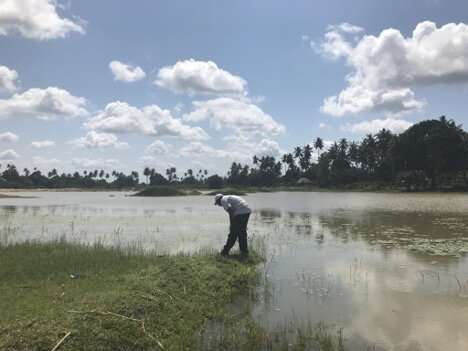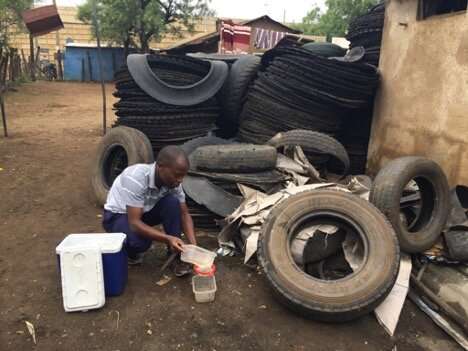Effective interventions may prevent disease transmission in changing climate

Aedes aegypti are the primary vector for mosquito-borne diseases such as dengue fever, however the effects of climate change-related weather anomalies on mosquito populations is not well understood. A study published in PLOS Neglected Tropical Diseases by Cameron Nosrat at Stanford University, United States and colleagues suggests that early interventions may prevent disease transmission even as extreme climate events may increase the abundance of Ae. aegypti populations.
Temperature and rainfall have significant impacts on Ae aegypti abundance, and climate change will likely intensify the frequency of extreme climate events such as floods, droughts, heat waves and cold waves. To better understand the specific effects of weather anomalies on the dynamics of vector-borne disease transmission, researchers conducted a retrospective cohort study to determine the impact of extreme rainfall and temperature on mosquito abundance and the risk of dengue infections in Kenya. Using satellite-derived climate data, the authors classified extreme climate events rainfall and temperatures as in the upper or lower 10% of historical averages. The researchers then monitored Aedes aegypti abundance using trapping methods and new dengue fever cases via blood samples collected from a cohort of 7,653 children.
Flood seasons contributed to significantly higher Ae. aegypti egg and adult abundance. However, extreme climate events and greater Ae. aegypti abundance did not correlate to an increased number of confirmed dengue fever cases. Human behaviors can modify the relationship between mosquito abundance and disease transmission, and influence infection risk. Preventative measures in the study sites may have contributed to reductions in dengue transmission. A major limitation of the study was the lack of long-term Kenya climate data; however, the authors believe their study effectively examines the influence of weather anomalies on various life stages of Ae. aegypti abundance.

According to the authors, "Dengue is the fastest-growing mosquito-borne disease in the world, and as climate change accelerates, many vulnerable populations will continue to be disproportionately impacted by this virus. Having shown floods to result in significantly increased dengue vector abundance, we hope to encourage actionable interventions to limit infection risk in light of these extreme climate events."
More information: Nosrat C, Altamirano J, Anyamba A, Caldwell JM, Damoah R, Mutuku F, et al. (2021) Impact of recent climate extremes on mosquito-borne disease transmission in Kenya. PLoS Negl Trop Dis 15(3): e0009182. doi.org/10.1371/journal.pntd.0009182


















